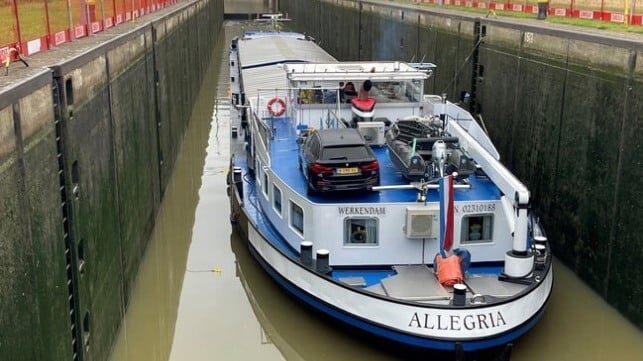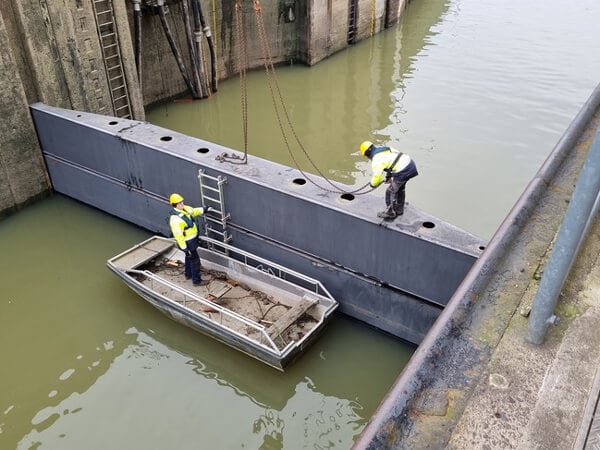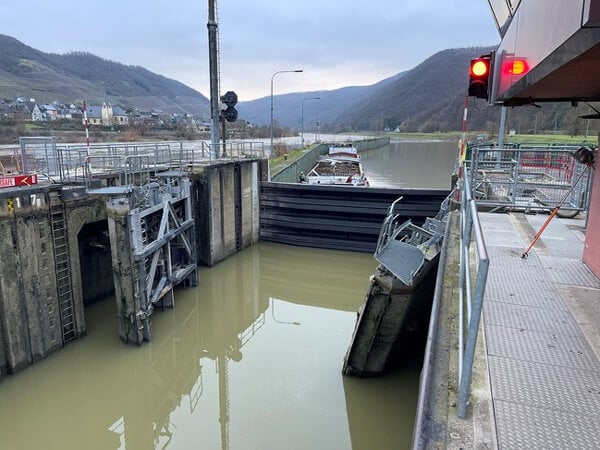Trapped Ships Freed as Temporary Locking Begins on Germany’s Moselle River

A temporary locking scheme was developed at the Müden lock on the Moselle River in an effort to free some of the trapped vessels after an accident destroyed the lock gates. While it was successful and the first vessel cleared the lock on Monday morning, December 16, the WPA Mosel-Saar-Lahn authority emphasizes it is a limited temporary solution until the lock can be repaired likely in the spring of 2025.
Starting late last week, the authority began making preparations and testing its temporary solution. On Saturday they performed a test locking operation to permit ships to begin to move downstream. Late last week they removed the two gates that were destroyed when a cargo ship failed to stop and hit the gates during a locking operation. The lock was drained and inspected, and some additional welding work was completed to prepare for the temporary operation.

Bridges normally used for maintenance are forming a temporary gate to permits vessels to travel downriver (WPA)
They are using the lock beams which are normally used to close the lock for maintenance and have to be set by crane. The process permits them to flood the lower chamber, move a vessel in, and lower the vessel, but they point out that once the operation begins they have no way to stop it. It takes about two hours to clear an individual vessel.
Monday morning, the GMS Allegria, a 262-foot (80-meter) cargo ship was first to proceed using the new method. The vessel is loaded with malting barley. Once the vessel was secured and the upper gate set, the water level began to decline. It took about 30 minutes to lower the vessel so that it could proceed on the Moselle.
The lock at Müden is critical as it permits larger cargo ships carrying metal scrap, agricultural products such as grain or rapeseed, tankers, and some passenger vessels access between the Rhine and the Saar and moving between Germany, France, and Luxembourg. A limited amount of the cargo can be moved by rail or road but parts of France and Luxembourg were stranded by the accident.

With the temporary gate in place, the damaged lock gates were removed last Friday (WPA)
Over the weekend, the WPA completed a survey with 74 vessels all moored above Müden and backed up to France registering for transit. Priority is being given to the ships laden with cargo, three tankers, and six passenger ships. In addition, five push barges registered, and two ships moving containers. A further 29 vessels are empty.

that matters most
Get the latest maritime news delivered to your inbox daily.
The authorities expect to be able to free five to six of the trapped ships a day with the goal of having them all out by the end of the year. They, however, noted that due to the shortened length of the lock push convoys are currently a problem. They no longer fit in the chamber.
Plans are underway for the full repairs. Many of the parts however will need to be individually fabricated leading to the expectation that it will take months to restore full operations and two-way vessel traffic on the Moselle.
